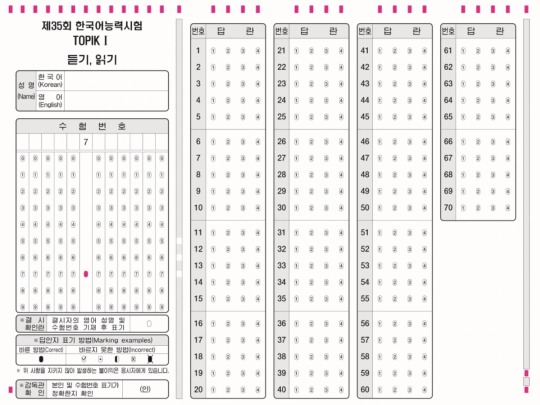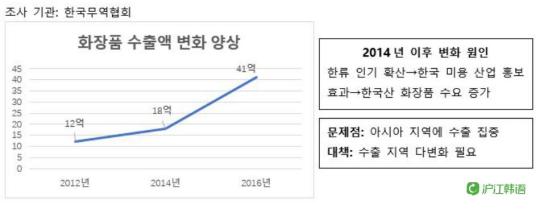#korean exam
I finally made it through to taking the 81st TOPIK 2 exam in London and wanted to offer some tips to anyone else who will be taking the advice. Looking back on things, the TOPIK has a very particular structure, and one of the things that I wish I’d done more is review content specific to this structure to better use my time, and to be more prepared. Here are some tips for anyone wanting to take the exam. This advice is based on the TOPIK 2 in London, so other test centres or other exams may work differently.
Procedure
The TOPIK 1 participants were asked to arrive at Westminster Kingsway College Victoria Centre at 8:30am-9pm, whereas the TOPIK 2 was later in the day, so we were asked to arrive between 11:40am-12:10pm. There were a lot of participants gathered outside, and when the doors were opened, we all showed our test ID slip and personal ID, did a temperature check, and were let inside. We were split into 5 different rooms and the room listings were on a board as you walked in.
Leading up to the test, the invigilators started giving out instructions in Korean, which were a little hard to follow. We had to put our IDs on the desk, switch off and hand in all phones and other devices, and were briefed on the exam rules. These were actually surprisingly strict. If you continue writing after time, or if your phone goes off in the invigilators’ box, then your results are nullified, and having electronics on you whilst taking the exam results in a 2 year ban.
The test itself has 3 parts: listening and writing, a break, and then the reading portion. For the listening portion, the tape will only play questions once, so you have to be extremely careful to pay attention, or you’ll miss points. The writing is cut into 3 sections: completing 4 sentences with correct grammar, describe a set of data, and writing an essay on your thoughts about a text. We were then allowed a short break to go to the bathroom before beginning the reading section. Once you finish the exam, your papers are collected, your devices are returned to you, and you are free to go. Our invigilators even gave us pepero after the exam!
Review and Advice
Listening: I definitely made a lot of mistakes with this test, which I want to avoid if I take it next time, and which I hope I can help you to avoid. Starting with the listening exam, I didn’t realise that the tape would only play once. I’ve taken a lot of Korean classes as well as listening tests for other languages and since things are usually repeated, I assumed they would be in the exam. I wrote down whatever words I heard to give myself a basis for answering the question, thinking that I would answer it after the second time. Nope. The next question started and I had to hurriedly guess the last answer based on my notes, which meant I missed the next question. This is what the listening and reading answer sheets look like. All of these answers are multiple choice, so don’t make the mistake of putting your answers in the wrong row, which I thankfully didn’t do.

Writing: Right before the exam started, as I was waiting outside, I thought that I should do a quick check to see how the writing is graded to make sure that what I write is going to get good marks. I watched this video and I’m so glad that I did. I had thought that for writing, I would get a question, I’d write my response. Simple. But this part of the test actually has a very particular layout with questions which require a specific way of answering. In the first questions, you are given a short sample text with two missing blanks, which you need to fill in. Any answer is accepted as long as it’s grammatically correct. The only thing to pay attention to is matching the formality of the text, but otherwise, this part is easy. The next part was much harder. You are given a graph as well as some background information and need to describe the data. It looks something like this:

The video which I mentioned has a really good suggestion of learning sample sentences to put the data directly into so that you don’t struggle to word the information during the exam. Honestly, this is a really good idea, especially since it saves time for the essay question next. This question requires 200-300 characters including spaces, but I don’t think it’s difficult to stay within the limit, and you can always shorten words. For me, I took way too much time on this question and didn’t have enough time to answer the essay question with enough characters for it to be accepted, so I probably lost a lot of marks just with timekeeping. The essay question is an opinion piece, which is 600-700 characters.Like I mentioned, you must leave enough time to write at least 600 words or your answer will be nullified.
Reading: I’m sure everyone is familiar with the reading paper, as example reading papers are the most common way to revise for the exam. My only advice for this is that you have so much less time than you think. I was working my way through questions as fast as I could, and even then when they called 10 minutes left, I’d only answered half. I went through one more question before choosing random answers for the rest. I could see a lot of other people had to do this too, so it seems to be a very common mistake that people make. There are 70 minutes to complete 50 questions, so theoretically, you have 1.4 minutes to answer each question. The best thing to do would either be to practise and practise until you can do this, or do what I did and work through the questions at your own pace and fill in random answers for the rest. This choice, as well as the risks that come with it, are completely up to you.
I hope that this is helpful to anyone planning to take the TOPIK, and I wish you all luck. 여러분 화이팅!
There’s only one week until I take the TOPIK II exam and now that I’m almost done, I figured I would stop in, let you know that I haven’t died studying, and talk about how the process has been so far.
I’ll make a couple of posts including free resources and textbooks which I’ve personally found helpful, my feelings leading up to the exam, and finally a little bit on what happens when you actually take the TOPIK exam. If there’s anything that you’d like to know, drop me an ask, and don’t forget to request some dramas for when I start posting again!
The TOPIK exam that I’m doing takes place on the 9th, and from then I’ll be taking a break to visit London and Paris until the 22nd. I’ll resume posting Studying Korean with K-Drama posts from then, unless I decide that I can’t wait. I also have a few surprise announcements to make too! I’ve really missed posting my usual content and interacting with you guys. See you all soon
In today’s Korean lesson we will be looking at the grammar phrase ‘It is pointless to…
You can say this in either three ways:
1) ~기에는 의미가 없다
2) ~는건 무의미하다.
3) ~도 소용이 없다
Let’s look at some example sentences
이대로 공부하다가는 다음주에 볼 시험을 불합격할텐데 지나치게 하기에는 의미가 없어요.
이대로 공부하다가는 다음주에 볼 시험을 불합격할텐데 지나치게 하는건 무의미해요.
이대로 공부하다가는 다음주에 볼 시험을 불합격할텐데 지나치게 해도 소용이 없어요.
All saying: If you study like this you will fail anyway so there is no point in studying so effortly?
앞날의 일은 걱정해도 소용없다
앞날의 일은 걱정하는건 무의미해요
앞날의 일은 걱정하기에는 의미가 없어요.
All saying: It’s pointless to worry about what lies ahead.
Okay last grammar for today is going to be V기만하면 which means ‘as long as you/she/he/i do something )
There is really no need for explanation as the title explains itself
Iam going to be using ‘뭐뭐뭐’ which is meaning Blah Blah Blah.
난 한국어를 열심히 공부하기만 하면 뭐뭐뭐뭐 // As long as I study Korean hard Blah Blah BLah.
넌 미안한다고 말하기만 하면 뭐뭐뭐뭐 // As long as you say sorry to me blah blah lah
and with no 하다 verbs like 가다
you can say
슈퍼마켓으로 가기만 하면 뭐뭐뭐뭐뭐 // As long as I go to the super market Blah Blah Blah
Alot of people who speak Korean as a second language, can speak fluently but sometimes it sounds weird. Here are the grammar you should remember but never use when speaking.
THIS IS 꿀팁 (Honey Tip/ Godlen Tip)
This tip is from my Korean Girlfriend ;)
그들은 (They), really I have never heard a Korean use 그들은 that much
The more natural and more common word for ‘They’ is
걔네들 and 그사람들 ( The people)
Your is 너의 but more common is 너네 but you can still use 너의
걔는 and 걔가 is more common than 그녀가 and 그가
I hope this helped.







